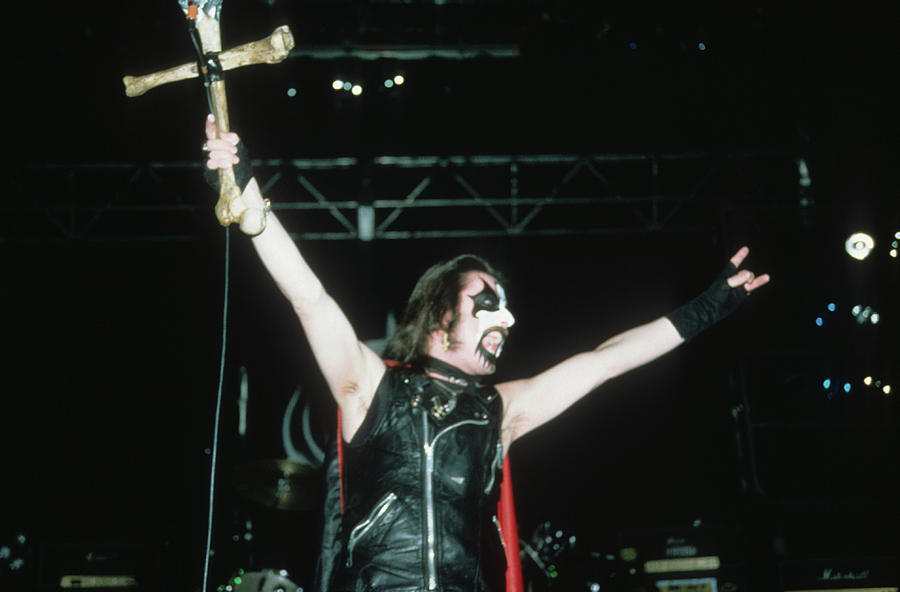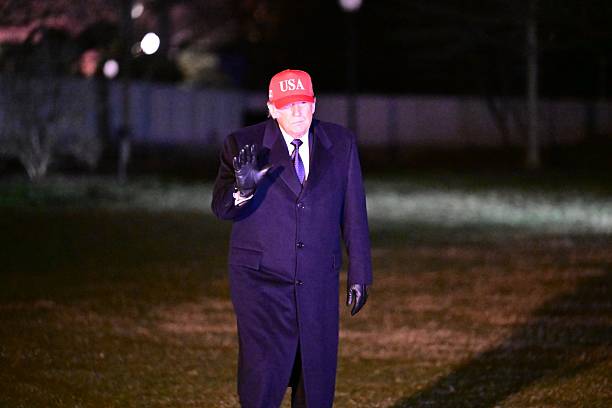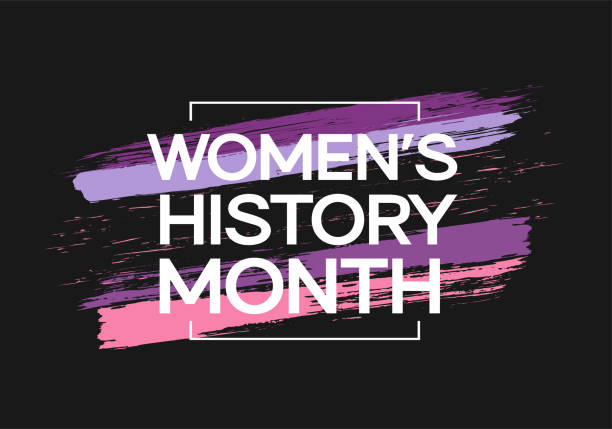(ThyBlackMan.com) If you rocked with ThyBlackMan as part of your heavy metal journey, then you’ll be thrilled with five more classic metal singers that aspiring metalheads should check out.
“Classic” just means metal from the formative decades of the 1970s and 1980s, so it can be any genre besides traditional heavy metal—but will it be? Let’s find out!
King Diamond (King Diamond, Mercyful Fate)
In part one, we discussed the incredible vocal abilities of Rob Halford (Judas Priest), Bruce Dickenson (Iron Maiden), and Dio (Dio). We also went into Ozzy’s approach and how I felt it was stronger with Black Sabbath’s more macabre lyrical content.
King Diamond is what happens when take Halford, Dickenson, and Dio’s level of skill and ability to change a song’s tone by emoting with their voice and pair it with Ozzy’s approach.
Ozzy, Halford, Dio, and Dickenson are all highly theatric stage performers. Their stagecraft during live performances set the bar in heavy metal. King Diamond took all of that and amplified it.
He’s able to scream, shriek, wail, and grow and will often do two or more in a song that calls for constant shifts in tone or to fit an atmosphere.
Getting his start in the band Black Rose in 1979, this outfit played music similar to the lyrical direction that ex-Brats and ex-Danger Zone band members King Diamond, Hank Shermann (guitars), and Michael Denner (guitars) would bring to Mercyful Fate.
The band played somewhat fast old school heavy metal with an obsession with Lovecraftian horror, the occult, and dark folklore.
King Diamond’s vocals were instrumental in making the concept work as it allowed the band to explore different stories and even conceptual stories.
King Diamond would form his solo band in 1985 and it’s pretty much more of the same only consistently active. I recommend checking out his performance of the songs “Melissa” with Mercyful Fate as well as “The Family Ghost” and “Welcome Home” from his solo band.

Tom Araya (Slayer)
Paying for the recording of Slayer’s debut album Show No Mercy via his then day job as a respiratory therapist, Tom Araya does double duty as lead singer and bassist for the legendary Bay Area thrash band.
That’s not factoring in all the lyrics he’s contributed about war, Hell, violence, and so on. While he has performed with other bands as a guest, Slayer’s been his main musical focus since 1981.
Araya’s singing is kind of a predecessor to the raspy singing and shrieks of black metal. It’s also something of a predecessor for the death growl tied to death metal.
Slayer never played either genre but his singing in the 1980s has elements you can find in both while both elements are used more for emphasis than has his whole singing style.
Like King Diamond’s singing, Tom Araya’s singing adds to the atmosphere of the band’s aggressive and dark lyrics. Often times, that’s the missing key for many bands: the voice that adds character and life to the lyrics.
Fortunately for co-founder and guitarist Kerry King, he found the perfect singer for Slayer back in 1981. Araya’s performance on the songs “Chemical Warfare”, “War Ensemble”, and “South of Heaven” are worth checking out.
James Hetfield (Metallica)
We can’t do a top five—pretty much a top ten, now—without mentioning James Hetfield. By extension, we can’t do the list, have Hetfield, and not mention Dave Mustaine’s vocals.
I’m tempted to put them as one entry but let’s just roll with this. Hetfield started with Metallica in 1981 after his previous band Leather Charm ended.
In that initial line-up were co-founder, drummer, and equally longest-tenured member Lars Ulrich as well as guitarist and future rival—in about two year’s time—Dave Mustaine.
Hetfield’s singing can be described as aggressive raw energy in the band’s early years. Lots of sneering and some yelling but it was like angrily singing under your voice…spitefully.
As the band matured, his vocals lost that level of raw aggression and afterwards it could come off as something similar to forced aggression. Upset just for the sake of the song.
I’ll say that if you want to experience his singing “Motorbreath”, “Four Horsemen”, and “Ride the Lightning” are prime examples.
Dave Mustaine (Megadeth, Metallica)
After leaving Metallica in 1983 due to behavioral problems on the band’s end and Lars being insufferable on his end, Dave Mustaine set out to create a Metallica killer. A band faster, more aggressive, and hungrier than Metallica.
While with Metallica, Mustaine mainly did guitar duties but also assisted others in the thrash scene with their guitar playing, having a more jazz-inspired playing style than most in 80s Bay Area thrash scene.
He also wrote a few of the band’s most iconic songs of their early period. He would later repurpose some of these tunes for his band Megadeth.
When he got on the mic, it was like listening to a Bizzaro World version of Hetfield. The sneering was more intense and the music sounded rawer and more ambitious.
It’s amazing how a hunger for revenge can bring out the best in one’s talents at times. A friend once referred his singing as “angry whining as if he’s constantly fed up about something.”
That’s as good a description as any.
As Megadeth matured, the band stayed less in the speed territory of thrash metal and went for more complex, layered playing. Also, the aggression wasn’t as pronounced in the sound or in Mustaine’s singing.
Some strong examples of Mustaine’s singing include the songs “Hangar 18”, “Peace Sells”, “Sweating Bullets”, and “Promise”.
Udo Dirkschneider (U.D.O, Accept)
So, we had a good triple dose of thrash metal singers, let’s bring things back to straight-up heavy metal. Udo Dirkschneider came to prominence in metal through his time as the front man for the band Accept.
He joined the band in 1976 but it wouldn’t be until 1980’s I’m A Rebel when we started to see some shimmers of the greatness that would manifest with 1981’s Breaker.
Udo’s probably the easiest to explain. If you’ve ever heard AC/DC’s original lead singer Bon Scott, then Udo is a German version of Scott with the grating, raspy vocal style.
It worked extremely well with the band’s faster tunes such as “Fast as a Shark”, “Fight It Back”, and “Loser and Winners”, rocking songs like “Neon Nights” and “Balls to the Wall” (their most popular and known song), and more reflective tunes like “Guardian of the Night”.
Staff Writer; M. Swift
This talented writer is also a podcast host, and comic book fan who loves all things old school. One may also find him on Twitter at; metalswift.

















Leave a Reply